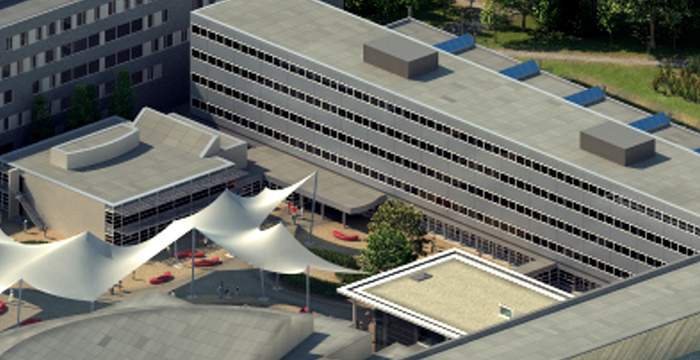Gwen is a member of the Pervasive Systems group within the Faculty of Electrical Engineering, Mathematics, and Computer Science (EEMCS) at the University of Twente since 2023. Graduating with a computer science master's degree from the University of Tsukuba in 2023.
Her current work focuses on collaborative Augmented Reality and Extented Reality experiences, particularly in the context of predictive maintenance in industrial settings. She aims to address challenges such as spatial inconsistency and latency in collaborative Extented Reality environments, while also exploring effective multi-user interaction and remote collaboration methods.
Her expertise includes Extended Reality, Augmented Reality, Virtual Reality, Computer Vision, Image Processing, 3D Modeling and Machine Learning.
Organisations
Are you a bachelor’s or master’s student curious about Extended Reality (XR), Augmented Reality (AR), or Virtual Reality (VR)? Here’s an exciting opportunity to work on enhancing AR experiences for collaborative environments! If you're interested in XR and eager to make a significant impact on user experience in cutting-edge collaborative settings, this project is for you.
I have several assignments related to augmented reality that you can explore [here]. If you’re interested in these assignments or have your own research ideas that align with my interests, I’d be happy to discuss them with you. Please feel free to reach out.
My research interests also lie in 3D Modeling, Computer Vision, and Image Processing, which do not necessarily need to be connected to XR/VR/AR.
Below are some thesis assignments I have supervised.
Supervision of Bachelor thesis projects:
- Exploration of Different Large Language Models for Retrieval-Augmented Generation in Analyzing Wearable Running Data for Sports Physiotherapy
- Network Simulation for Investigating Latency Contributors in Collaborative AR Systems
PrimaVera
Enhances reliability with scalable predictive maintenance and optimization
No more train delays, power outages, or failure of production machines? The PrimaVera project, funded by the Dutch National Research Agenda (NWA), represents a major step towards this goal. With predictive maintenance, or just-in-time maintenance (maintenance just before a system breaks down), the reliability of infrastructure and production resources can be increased and the costs of maintenance can be reduced.
Existing predictive maintenance techniques only work for small-scale systems and are difficult to scale up. Choices made in one place in the chain have an important influence on other processes in the chain. The choice of a certain type of sensors and measurements influences the type of predictions that can be made, and therefore also the quality of the predictions. That is why cross-level optimization methods are being developed within PrimaVera.
Address

University of Twente
Zilverling (building no. 11), room 5007
Hallenweg 19
7522 NH Enschede
Netherlands
University of Twente
Zilverling 5007
P.O. Box 217
7500 AE Enschede
Netherlands